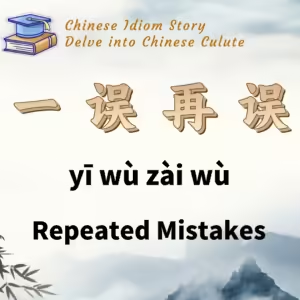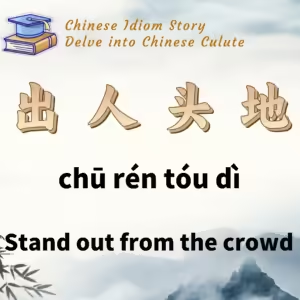
Chinese Idiom: 挺身而出 (Ting Shen Er Chu)
English Translation: Stand out and take action
pīn yīn: tǐng shēn ér chū
Idiom Meaning: This idiom describes someone who volunteers courageously and stands out from the crowd to take on responsibilities, regardless of the risks involved.
Historical Source: Old Book of Tang (《旧唐书 ·敬君弘传》).
Idiom Story:
During the Tang Dynasty, Emperor Gaozu (Li Yuan) had three sons: Li Jiancheng, Li Shimin (later known as Emperor Taizong), and Li Yuanji. Like many royal families, they were embroiled in power struggles, often resorting to treachery and murder. Li Jiancheng, being the eldest, was crowned as the crown prince, but he lacked the popularity and military prowess of Li Shimin, who was known for his significant contributions in overthrowing the Sui Dynasty.
Fearing that Li Shimin would usurp the throne, Li Jiancheng conspired with Li Yuanji to assassinate him. When Li Shimin caught wind of this plot, he swiftly strategized with his loyal aide, Fang Xuanling, and decided to take preemptive action. They laid an ambush at Xuanwu Gate, waiting for Li Jiancheng to enter the palace.
As the confrontation escalated, Li Jiancheng and Li Yuanji rallied about two thousand troops to attack Li Shimin. At this critical moment, the commander of the imperial guards, Jing Junhong, was stationed at Xuanwu Gate. The battle raged fiercely, with arrows raining down on the palace.
In this chaotic and dangerous situation, Jing Junhong exhibited exceptional bravery. Although his trusted subordinates advised him to assess the situation and wait for reinforcements before engaging, he chose to disregard their warnings. Instead, he boldly charged into battle alongside another officer, Lu Shiheng, shouting commands to rally the troops. His courage and willingness to step forward in the face of danger earned him the admiration of Li Shimin, who would later become emperor.
Jing Junhong’s actions exemplified the spirit of “挺身而出,” showcasing the importance of bravery and decisive action in times of crisis. His legacy became a symbol of courage and leadership in the history of the Tang Dynasty.






